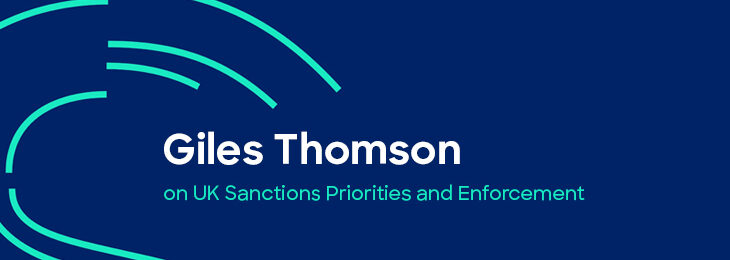
As the current regional anti-money laundering (AML) director-APAC at ACAMS, Caryn Leong serves as the lead English-speaking subject-matter expert (SME) practitioner in AML and financial crime compliance across the Asia-Pacific (APAC) region. She manages a small team of experts and engages in government, regulatory and industry initiatives to address evolving regulatory risks. Working closely with APAC and international colleagues, Leong plays a key role in shaping ACAMS’ priorities, offerings and activities across the APAC region through ACAMS’ global thought leadership efforts, contributing to research, white papers, opinion pieces and executive briefings.
Leong brings to ACAMS a diverse global banking experience in large financial institutions (FIs) such as Standard Chartered, Clearstream Banking, JPMorgan and UBS AG, to name a few. With a diverse professional background, Leong has consistently demonstrated her ability to turn ideas into action, achieving recognition for the successful execution of company-wide initiatives.
ACAMS Today (AT): Could you describe a typical workday for you as ACAMS regional AML director for the APAC region?
Caryn Leong (CL): There isn’t a typical workday for me, but I usually start my day catching up with all the anti-financial crime (AFC) news, guidance papers and anything that the team has shared in the group chat. Leading up to a conference, I may be working on conference topics, researching or preparing for the panels I am moderating or reaching out to practitioners. On days I have webinars, it means preparing for it in the morning, making sure I am familiar with the content and flow of the discussion and getting myself mentally prepared for it. There are days I would also catch up with AFC practitioners and technology vendors to understand what they are seeing on the ground, the challenges and how we can develop relevant content to address these challenges.
AT: What emerging AML trends or developments have you noticed in the APAC region during the past year?
CL: In the last year, scams have been big on the AFC radar as well as U.S.-China geopolitics.
The vast majority of the overall increase in reported fraud in recent years has been driven by the dramatic rise in authorized fraud, through which scammers trick businesses and/or consumers into authorizing payments to accounts under the fraudsters’ control. Money laundering and fraud are closely related in terms of criminal conduct and legal requirements and there have been many discussions around the convergence of fraud and transaction monitoring teams and processes to have a more holistic approach.
The U.S.-China geopolitics or tensions have FIs extremely concerned about where they operate and how they are operating. Most FIs have taken this risk into consideration in their enterprise risk management framework (ERMS) and have developed strategies to manage this risk. This issue also presents itself in secondary sanctions, U.S. dollar and Chinese yuan payments, which are challenging.
AT: The issue of pig butchering scams, most of which seem to originate in Southeast Asia, is a hot topic currently. What can FIs do to combat this type of fraud?
CL: Pig butchering scams in Asia came to prominence in early 2023. This has led to FIs working with law enforcement to share information and take proactive measures. There are now anti-scam centers in several Asian countries as a result of this public-private partnership.
An ecosystem approach is required to combat this type of fraud. There is a need to build customer awareness so that individuals are aware of how these scams are evolving. Banks have deployed frequent scam education alerts and also removed clickable links in emails and SMS.
Transactional controls have also been put in place, such as digital token cooling periods of at least a few hours. Lower default transaction limits were also implemented. Customers now receive transaction notifications and FIs have rolled out emergency self-service “kill switches” for customers to suspend their accounts quickly.
Fraud surveillance may need to be bolstered. FIs have used technology to meet this challenge, such as real-time detection of fraudulent transactions and the use of behavioral biometrics.
Finally, FIs’ staff should co-locate at police anti-scam centers so information can be shared quickly.
AT: Human trafficking (HT) continues to be a key concern throughout the world. Have there been any new developments regarding HT that you are seeing in the APAC region?
CL: Interestingly, one of the findings from a report by the Office of the United Nations High Commissioner for Human Rights (OHCHR) is that people who previously held professional jobs, have graduate or postgraduate degrees and come from countries including Singapore are among the new types of victims trafficked abroad to work in scam centers. Scams flourished when the COVID-19 pandemic hit, with many people stuck at home and spending more time online, making them easier targets. When the region reopened, traffickers took advantage of those who lost their jobs due to the pandemic and were anxious for work. According to the OHCHR report, trafficking cases in Southeast Asia used to involve mostly victims who had lower educational qualifications and who worked in low-wage jobs. However, the latest findings show the trend is now to also target individuals who are well-educated, computer-literate and multilingual.
To submit topic ideas or comments, email editor@acams.org.
Interviewed by: ACAMS Today editorial, ACAMS, USA










